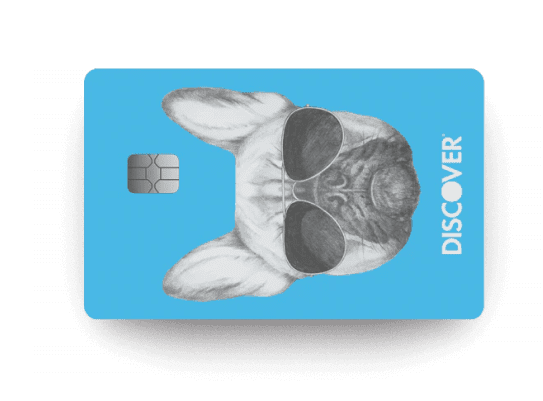

Applying for a credit card online can be intimidating for some people. Will you get approval? What happens if you’re declined? How much credit do you need? Before you apply, it can be helpful to know what information the credit issuer requires when applying for a credit card and if submitting an application affects your credit score. Once you know what you need, you can apply in minutes by filling out a Discover credit card application online.
You can compare Discover ® credit cards to other industry-leading cards to choose the one that’s best for you. Find Discover ® Cards that offer rewards in specific categories and everyday spending, all with no annual fee on every credit card.
Online research is the key to finding the best credit card for you. A few online searches among issuers can provide valuable information. You can find cards tailored to your credit profile and find the best credit card rewards program for you, whether that’s one with cash back, travel rewards, no annual fees, or some combination of the above.
The most important way to protect your personal information when applying for credit cards online is to ensure the website is secure. You should always make sure that the URL in the address bar is “https” rather than “http”. This ensures there’s encryption in your session between the web server and the browser you’re using.
Before you apply for a new credit card, it’s important to understand how it may affect your credit score. Every credit card application results in a hard inquiry into your credit, which creditors can see on your credit report.
The impact from applying for credit cards varies from person to person based on their unique credit histories. The Office of Financial Readiness says that hard inquiries will stay on your credit report for two years. Additionally, the FDIC says hard inquiries tend to have a small impact on your credit history, with new accounts accounting for only 10% of your total score. However, inquiries can have a greater impact if you have few accounts or a short credit history.
With no harm to your credit score 1
If you want to earn rewards for everyday spending on gas and restaurants you will want to look for a card offering the highest cash back in those categories. However, if you are a frequent traveler, you will want to look for a travel card with good rewards, and a variety of ways to redeem for travel.
If you have received a pre-qualified credit card offer, it doesn’t necessarily mean that it will be a good fit. Always read the terms and conditions carefully.
Pre-approval means that a lender looks at your credit report to determine whether you’re likely to achieve final approval. This review is a soft inquiry, and it doesn’t affect your credit score since you haven’t applied for credit yet.
If you received a pre-approved offer for a 0% APR intro rate, make sure you know the standard purchase APR and any additional fees that apply. It’s also important to keep in mind that pre-approved status is not a guarantee you will receive the card if you don’t meet the issuer’s credit standards when you apply.
When you apply for a card, all details must reflect your current financial and personal situation. For example, if something might be changing in a few weeks (like you’re getting a pay raise or starting a new job) you still need to state the details that currently apply to you. It’s good to look over all the questions your credit card issuer asks you and review any additional information they may provide regarding their questions.
It’s important to pay attention to what the credit card company requires for each field. Mistakes like mixing up your first and last names or incorrectly entering your income can result in a processing delay or even a declined application.
If a section of the application isn’t clear or you’re unsure of what to enter, contact the credit card provider and get them to clarify it for you. It’s better that you don’t take a guess and risk giving the wrong information. Giving the wrong info could cause a delay or mean you won’t get approval.
You can apply for a Discover credit card online. You may want to fill out a pre-approval form to see the APR and offers you might qualify for before you apply. But again, keep in mind that even if you receive a pre-approved offer, you’ll still need to complete an application.
While every credit card application is different, understanding the application process and how to avoid common mistakes may increase your chances of approval and set you up for financial success.

Students: See if you’re Pre-approved


See rates, rewards and other info
You may also be interested in
Was this article helpful?
Glad you found this useful. Could you let us know what you found helpful? Article was easy to understand Article answered my questions I understand what Discover offers Submit my feedback Sorry this article didn't help you. Can you give us feedback why? Article was confusing Article was too long This information isn't what I was looking for I don't understand what Discover offers Submit my feedbackWas this article helpful?
Thank you for your feedback
You are leaving Discover.com
You are leaving Discover.com and entering a website operated by a third party. We are providing the link to this website for your convenience, or because we have a relationship with the third party. Discover Bank does not provide the products and services on the website. Please review the applicable privacy and security policies and terms and conditions for the website you are visiting. Discover Bank does not guarantee the accuracy of any financial tools that may be available on the website or their applicability to your circumstances. For personal advice regarding your financial situation, please consult with a financial advisor.